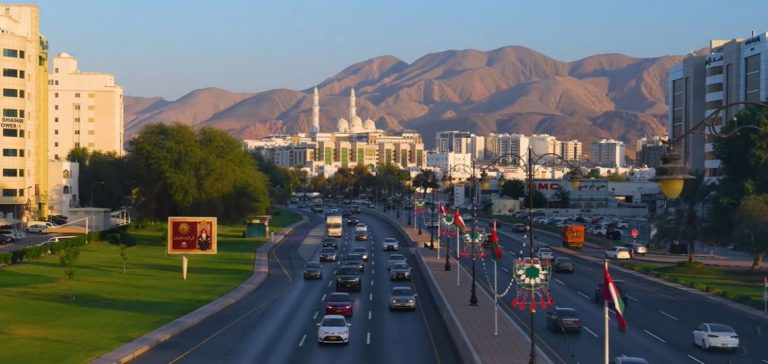Oman regains its investment status after seven years of financial uncertainty marked by a credit rating downgrade in 2016. Rating agency Standard & Poor’s (S&P) has announced the upgrade of Oman’s credit rating from ‘BB+’ to ‘BBB-’ with a stable outlook. This decision reflects the country’s sustained efforts to rebalance its public finances through structural reforms and prudent debt management. The government implemented a medium-term financial plan which, combined with a rationalization of public spending, has generated budget surpluses.
These reforms have helped strengthen the country’s budgetary position and stabilize its finances despite the volatility of oil prices, a key factor in its economy. In parallel, Oman has restructured its public enterprises to improve governance and optimize their financial performance, resulting in a significant reduction in their debt levels.
Optimistic Budget Projections for 2024-2027
According to S&P, Oman’s budget could generate surpluses of 1.9% of GDP over the 2024-2027 period, assuming Brent crude oil prices average $80 per barrel between 2025 and 2027. This would enable the country to continue reducing public debt while building financial reserves. The government expects real GDP growth of 2% per year during the same period, supported by increased oil production and a 2% annual growth in non-oil sectors.
Inflation is expected to remain moderate, averaging 1.4% per year, following a low of 0.9% in 2023. Private sector credit growth has also been encouraging, reaching 4.9% in 2023, and is projected to stabilize at 5-6% annually, supported by favorable credit conditions. The current account is expected to show an average surplus of 1.2% of GDP over the 2024-2027 period, enhancing the country’s economic resilience against external shocks.
Improvement in Public Enterprise Management
Since 2020, Oman has intensified efforts to streamline its public enterprises’ management, thereby strengthening their operational and financial performance. The creation of the Oman Energy Development Company (EDO) and the Integrated Gas Company (IGC) has improved transparency and efficiency in the energy sector, while reflecting net revenues after deducting oil and gas sector expenses.
These initiatives have increased the profitability of public enterprises and significantly reduced their debt. In parallel, the new Public Debt Law has reinforced the legislative framework governing the state’s debt management, contributing to better management of the country’s financial assets. According to S&P, public liquidity is expected to remain stable at around 36% of GDP by 2027, while the public debt-to-GDP ratio is projected to decline to 29% by that year.
Growth Perspectives and Economic Resilience
The upgrade of Oman’s credit rating is also attributed to continued efforts toward economic diversification, aimed at reducing dependence on hydrocarbons and boosting growth in non-oil sectors. The development of new infrastructure, combined with an improved business climate, could attract new foreign investments.
S&P remains optimistic about the country’s ability to maintain this trajectory but cautions that Oman’s financial situation remains vulnerable to oil price fluctuations and the slow implementation of its reforms. The recently acquired budgetary flexibility represents a major asset, but any delay in implementing diversification measures could hinder progress.






















